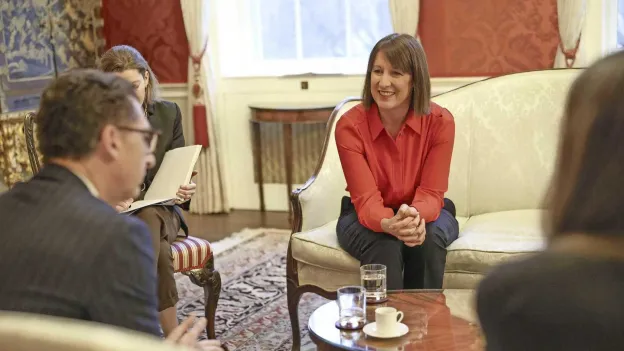
British Long-Term Interest Rates at Highest Level Since Credit Crisis: 'Investors Strike'

amsterdam - With rising British interest rates and fears of a recession, concerns arise about stagflation reminiscent of the 1970s in the United Kingdom.
British government debt interest rates have reached their highest level since the credit crisis. This Wednesday, long-term interest rates rose above the level that led to the resignation of former Prime Minister Liz Truss. Fears of a tariff war with the United States and concerns about the economic policies of the Labour government underlie the increase.
Analysts suggest there is an 'investors strike' in terms of purchasing British government debt. Craig Inches of Royal London Asset Management mentioned, 'The British government continues to issue new government bonds while investors are hesitant to buy due to disappointing economic data in the United Kingdom.' Lower prices automatically lead to a rise in long-term interest rates.
The increasing interest rates are a global phenomenon, hence the panic is not on par with when Truss announced her unfortunate budget plans. However, challenges are mounting for British Finance Minister Rachel Reeves. With the rising interest rates on government debt, the space Reeves had created for herself with the huge tax increase last autumn is disappearing. Consequently, there are fears that new tax hikes or further austerity measures may be necessary.
The hike in interest rates is partly due to uncertainty surrounding the plans of the new U.S. President Donald Trump, who previously announced significant increases in import tariffs. Nonetheless, British interest rates are rising faster than in other European countries. Analysts attribute this to Reeves' policy, where substantial additional spending, especially on healthcare, was financed with one of the highest tax increases in British history.
The Bank of England, in its most recent interest rate decision just before Christmas – where the rate was kept unchanged – hinted at serious concerns of a recession. Companies seem reluctant to make investments due to the substantial increase in social security contributions they must pay, which could also lead to higher inflation. The higher costs would inevitably be passed on to consumers.
Costas Milos, a Finance professor at the University of Liverpool, expects that inflation will rise even if Trump chooses to only increase import tariffs on Chinese products. According to him, this will result in repercussions initially causing a global increase in inflation, followed by a decline in global economic growth.


Leave a comment